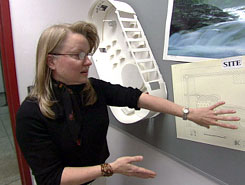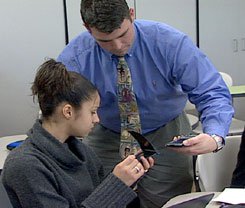Edutopia Professional Development Guides
These free instructional guides, formerly known as the Teaching Modules, were developed by education faculty and professional developers for their colleagues. They can be employed as extension units in existing courses or can be used independently in workshops and meetings.
Each guide includes articles, links to video footage, PowerPoint presentations, and class activities. They draw from the wealth of Edutopia's archives of best practices and correlate with ISTE NETS standards.
We will update these modules over time, and we welcome your suggestions for future topics and feedback. Email us at feedback@edutopia.org.

Project-Based Learning Professional Development Guide
Project-based learning, as with all lessons, requires much preparation and planning. It begins with an idea and an essential question. When you are designing the project and the essential question that will launch the activities, it is important to remember that many content standards will be addressed. With these standards in mind, devise a plan that will integrate as many subjects as possible into the project. (Updated November 2011.)

Technology Integration Professional Development Guide
Students often become engaged learners when technology is a seamless part of their curriculum. Technology integration changes classroom dynamics, encouraging project-based learning and constructivist thought. Think about what you are doing in the classroom with your students: What projects are they working on? What resources are they using? What tools are being used? Is technology use transparent and varied?

Assessment Professional Development Guide
Today, we know learning requires that the learner engage in problem-solving to actively build mental models. Knowledge is attained not just by receiving information, but also by interpreting the information and relating it to the learner's knowledge base. What is important, and therefore should be assessed, is the learner's ability to organize, structure, and use information in context to solve complex problems. (Updated November 2011.)